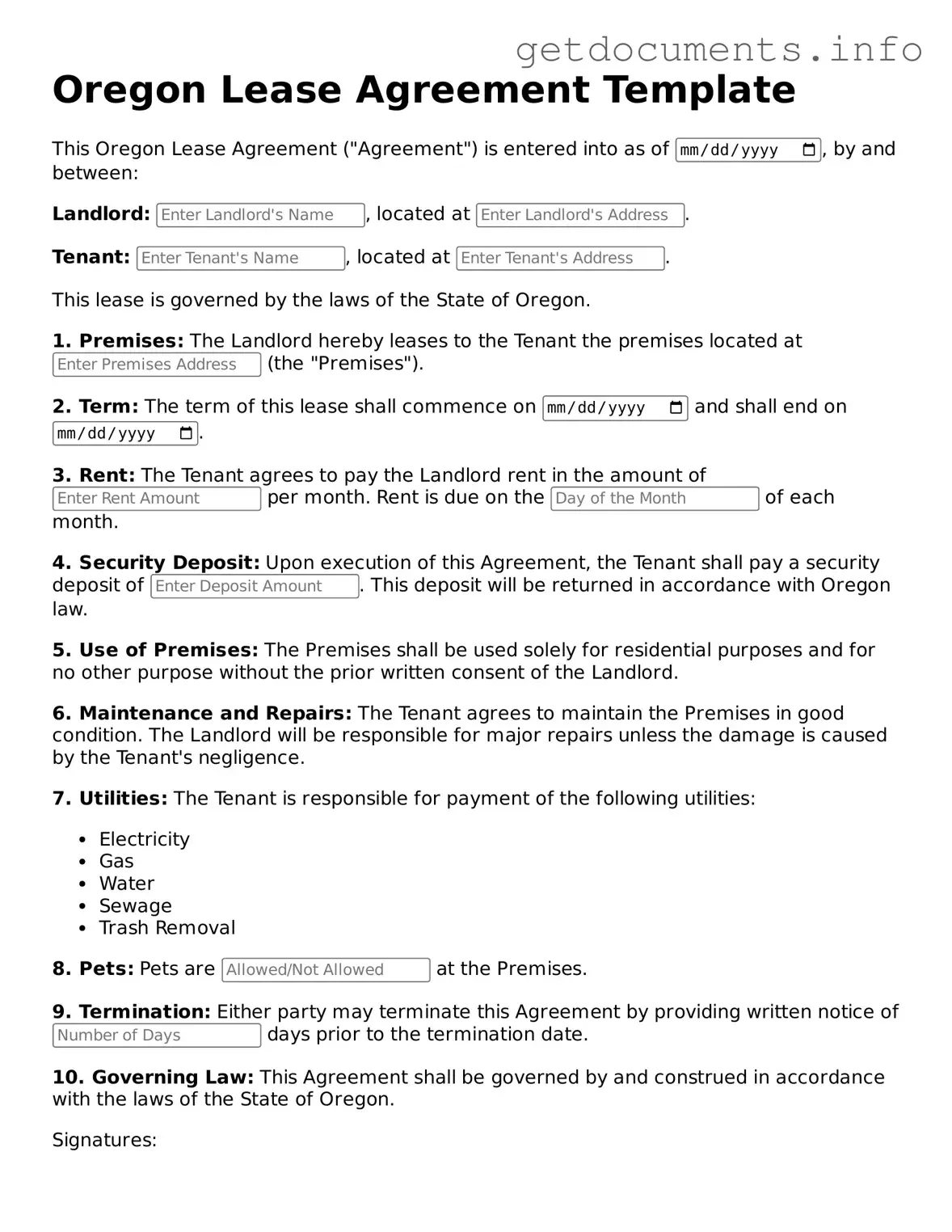Free Lease Agreement Template for Oregon
The Oregon Lease Agreement form is a legal document that outlines the terms and conditions between a landlord and a tenant for renting residential or commercial property in Oregon. This agreement serves to protect the rights of both parties and ensures clarity regarding rental payments, maintenance responsibilities, and other essential details. For those looking to secure a rental arrangement, filling out the form is a crucial step; click the button below to get started.
Access Lease Agreement Editor

Free Lease Agreement Template for Oregon
Access Lease Agreement Editor
Got places to be? Complete the form fast
Fill out Lease Agreement online and avoid printing or scanning.
Access Lease Agreement Editor
or
⇩ PDF File
